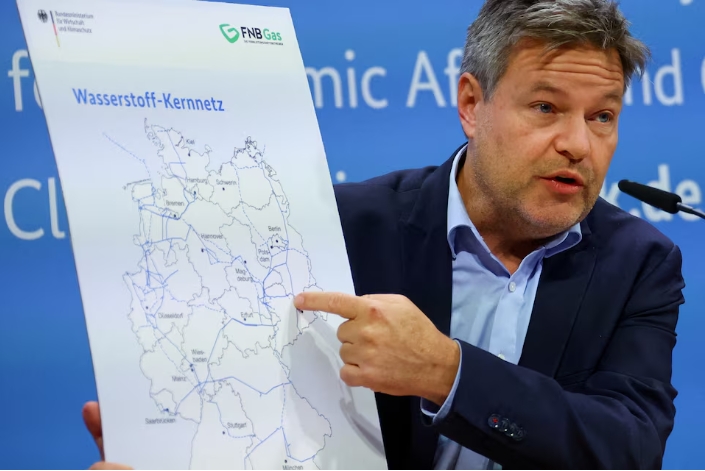
Germany's ruling coalition on Friday agreed a financing mechanism for the country's future hydrogen network, extending a deadline for it to be built by five years to 2037 and offering protection for investors in case of bankruptcy.
Many countries are betting on hydrogen, which can be used in part to replace natural gas, as they seek to decarbonise their economies and find ways to absorb intermittent renewable supplies into the power grid. Germany, which was heavily reliant on Russian gas until the Ukraine war began, is especially keen to shift towards hydrogen.
The country's core network for hydrogen fuel will extend over 9,700 km (6,000 miles) and cost around 20 billion euros ($21.6 billion), with existing gas pipelines making up 60% of the network.
The energy policy lawmakers of the government's three coalition parties on Friday agreed on the network's details that will be discussed and are expected to be agreed by the lower house of parliament next week, the lawmakers said in a joint statement.